
During Sunday’s win over Richmond, Massachusetts men’s basketball starting guard Freddie Riley was tacked with the assignment of neutralizing Spiders’ leading-scorer Darien Brothers.
Brothers came into the game shooting lights out, with a pace just shy of 47 percent from the field and a staggering 50 percent from 3-point range as part of his 16.3 point per game campaign.
Yet Riley, a senior, didn’t let Brothers out of his sight for the entire game, getting up close and physical on the defensive end to disrupt Brothers, holding him to a modest eight points on 3-of-15 shooting and 1-of-9 from beyond the arc, in a critical victory over an Atlantic 10 foe.
Three years ago, Riley would never have drawn such a role, let alone thrive while fulfilling it.
When he first came to UMass, the Ocala, Fla., native’s game revolved solely around his showing in the box score. If he shot the ball well and racked up good scoring numbers, he deemed his performance to be positive. Nowadays, Riley’s mindset and attitude have pulled a complete U-turn, according to UMass coach Derek Kellogg.
“He valued making baskets and really judged whether he played well, whether shots went in or not,” Kellogg said. “And I think after years of coaching and spending a lot of time with him, his focus has shifted to some of the more valuable aspects of the game.”
For instance, Riley said he had never been asked to play defense in his career, but took it on as part of his growth as a player and newfound role on the team. He’s also turned down ill-advised 3-pointers for better shots, whether by himself or by setting up a fellow teammates.
“I’m a lot more mature on and off the court,” Riley said. “I don’t take the same dumb shots that I used to take because I know the value of each possession more now since I’ve been in college for four years.”
His change of heart came during an adversity-ridden 2011-12 campaign, which saw Riley’s starting job disintegrate into a limited role coming off the bench. He started the first seven games of the season, but after a rough shooting skid, he was replaced by guard Jesse Morgan, who brought defensive intensity to the lineup that the Minutemen were lacking at the time.
Riley’s role diminished more and more as his shooting woes became more glaring. He fell deeper and deeper down the bench, finishing eighth on the team in minutes (17.3 per game) and scoring (6.5 points per game).
Riley said his confidence took a major hit during last season. He was worried more about not making mistakes and being sent back to the bench, rather than playing comfortably and allowing his natural ability to show up on the court.
When coming off the bench, if his first few shots didn’t fall, he shied away from his shot so as not to hurt the team or return back to the bench.
“When you’re coming off the bench, you don’t have as much leeway as a starter, so you gotta make sure you just play as mistake-free as possible,” Riley said. “That’s something hard to do when it’s all you’re thinking about.”
Kellogg said he sensed Riley’s confidence starting to dwindle in his role off the bench last year. Riley was notorious for taking deep contested triples at inopportune moments during the game — a result of his immaturity on the floor.
“I wasn’t so concerned as a coach about whether (his shots) went in or didn’t go in, it was the type of shots,” Kellogg said. “When you’re coming in and it’s a tough, deep 3 every time or on occasion, I think that lends itself to missing.”
But the 2012-13 season got off to a promising start for Riley, as he dropped 21 points in the Minutemen’s only scrimmage of the season on Nov. 3 against American International. Riley finished 7-for-12 from the floor, including 6-of-10 from 3-point land.
Riley was hesitant to call the scrimmage a turning point, but felt it was a reinforcement that he was capable of being an effective and consistent option on the offensive end.
Despite Riley’s strong showing in the scrimmage, it was short lived, as his shooting struggles resurfaced and earned him a spot back on the bench in the fourth game of the season.,
But in the matter of one play, Riley’s role would take on a whole different level.
Morgan hit the floor against Saint Louis on Jan. 10 screaming in pain while clutching his right knee. Days later, the injury was ruled a torn ACL, which ruled him out for the remainder of the season.
With Morgan down, Riley was thrown into a very similar position as last year, except this time, Riley was replacing Morgan and not losing his job to him.
Riley’s been a permanent fill-in in the starting lineup ever since. And being one of only three true guards eligible on the roster, playing time is no longer at a premium for Riley. He didn’t take a single rest during Sunday’s win, and has averaged 36.25 minutes per game since becoming a starter again.
In that four-game span, Riley’s averaged 11 points per contest on 38.1 percent shooting — a credit to his better shot selection on the floor and ever-growing maturity.
“I think he’s more conscious of taking good shots and not really pressing so much, and all of a sudden he’s open more and he’s getting better looks,” Kellogg said. “That’s just college basketball and it takes kids a while to figure it out.”
With his heightened awareness on the court, Riley has been left on the floor in critical points during games.
Riley’s done more than simply fill a spot on the court in crunch time, however. On Jan. 13, the Minutemen clung to a two-point lead in the final minute of play at Fordham. The Rams had all the momentum of a second-half surge and the home crowd bearing down over the court, and were one stop away from having a chance to tie the game or win it in regulation.
But Riley drilled a corner 3-pointer in front of the UMass bench with 34 seconds left in regulation to push the Minutemen’s lead to two possessions at 72-67 — a deficit that Fordham could not overcome, as UMass escaped with a 77-73 victory.
One game later, the Minutemen coughed up a 14-point halftime lead as Duquesne made it a five-point affair with just under seven minutes to play. That was until Riley drilled a pull-up triple in transition, which sprung the UMass lead back up to eight and ignited a 12-4 sprint to the finish to hold on for a 79-66 triumph.
“I think (Kellogg) trusts me a lot more if a team is on a run and I’m in the game,” Riley said. “I think he trusts me to make a smart play instead of taking a bad shot.”
Fellow guard Chaz Williams has taken notice of Riley’s attitude adjustment on the court, which he feels has had a positive impact for UMass.
“Freddie always has been talented, but sometimes his attitude got in his way,” Williams said, “and this year he’s doing a great job at keeping it controlled, doing what he’s got to do on and off the floor, and it’s starting to help us as a team and it’s helping him as an individual.”
Part of Riley’s impact on the team is his inherited role as a lock-down defender, one that Morgan filled in his time in the lineup. Morgan was the Minutemen’s most reliable defender and previously took on the responsibility of taking the opposition’s best perimeter scoring threat.
With Morgan sidelined for the rest of the year, Riley said he felt it was his duty to fill the missing gap that Morgan left on the defensive end.
“With (Morgan) being down, I have to step my defense up a lot in case Chaz gets in trouble, I might have to start guarding the point guards,” Riley said. “We’re the only guards besides Trey (Davis), so you gotta stay in the game as much as possible, and we gotta make sure that we don’t get tired and that we just play solid.”
Kellogg can’t ignore Riley’s improved play on the court. But to Kellogg, he’s been more impressed, and pleased, to see him become a better person and take advantage of the opportunities he has at UMass. Kellogg said Riley’s become a more active member on campus and has excelled as a student-athlete.
On the basketball court, the place where Riley has seen so much adversity and so much growth from when he first came to UMass, Kellogg has been thrilled to see him become a better-rounded player, rather than just being a shooter. He said Riley is more concerned with winning basketball games rather than putting up numbers in a box score, which he feels is a reflection of Riley growing and maturing as not just a basketball player, but as a young man.
“I think that’s why guys like myself like to coach: to see kids that now can probably go in the real world when his playing career is over and provide for himself and a family, and that’s really what this is all about,” Kellogg said, “a kid that maybe wouldn’t have had a chance if he wasn’t playing basketball or didn’t come to a place like UMass.”
And for Riley, he’s excited about the progression he’s made in his four years at the university.
“I’m just happy I changed,” he said.
Stephen Sellner can be reached at [email protected] and followed on Twitter @Stephen_Sellner.

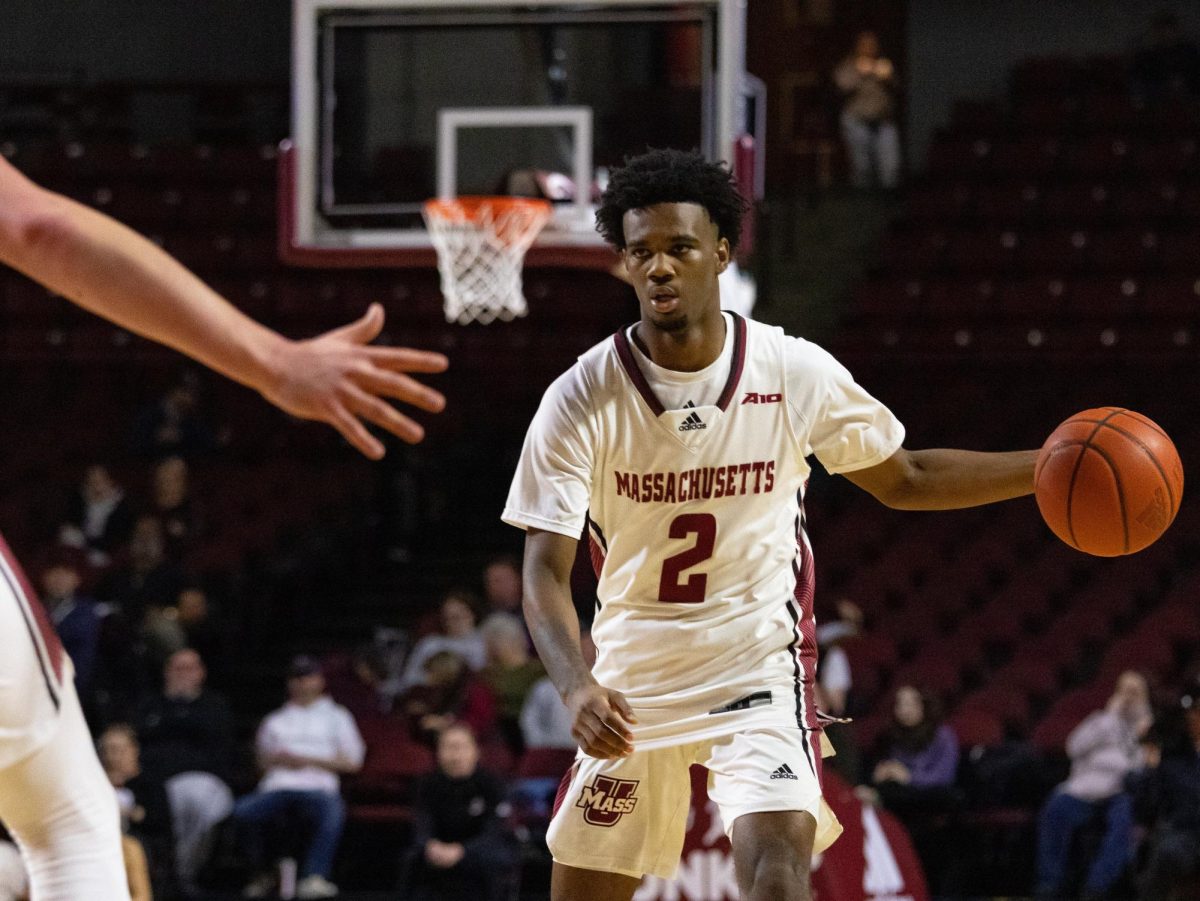
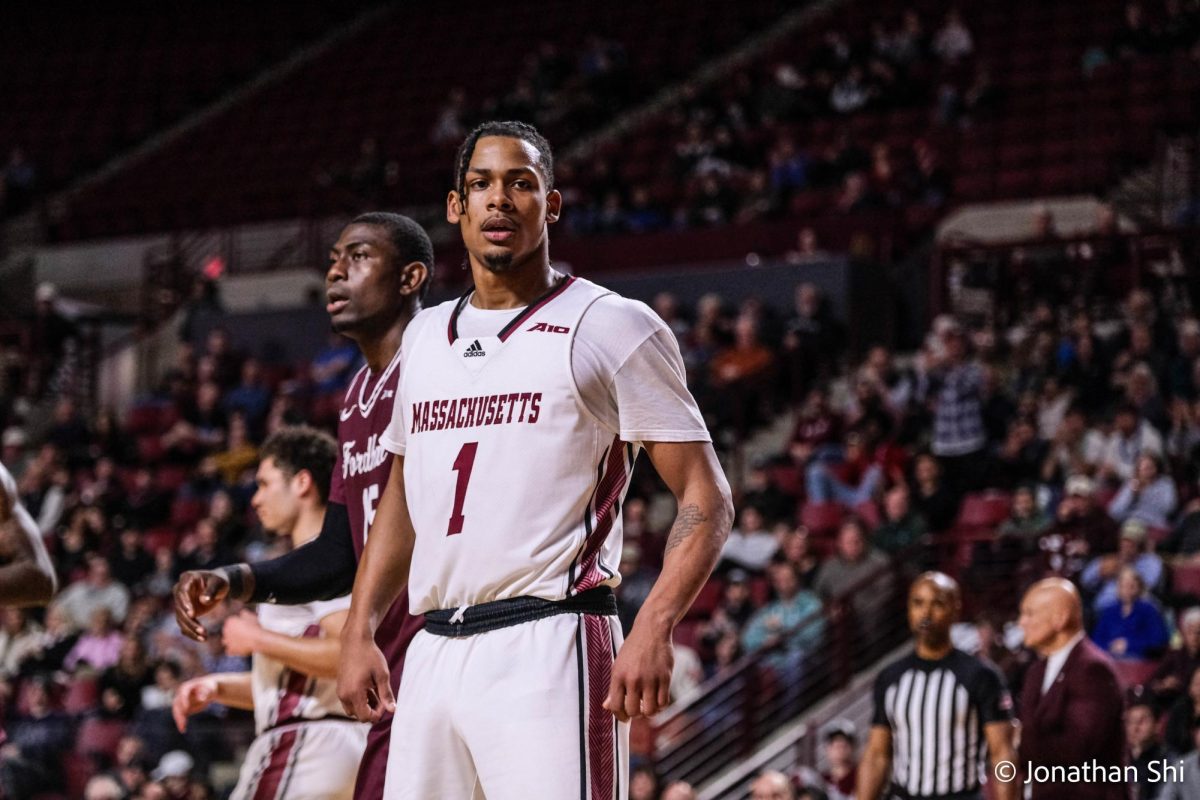
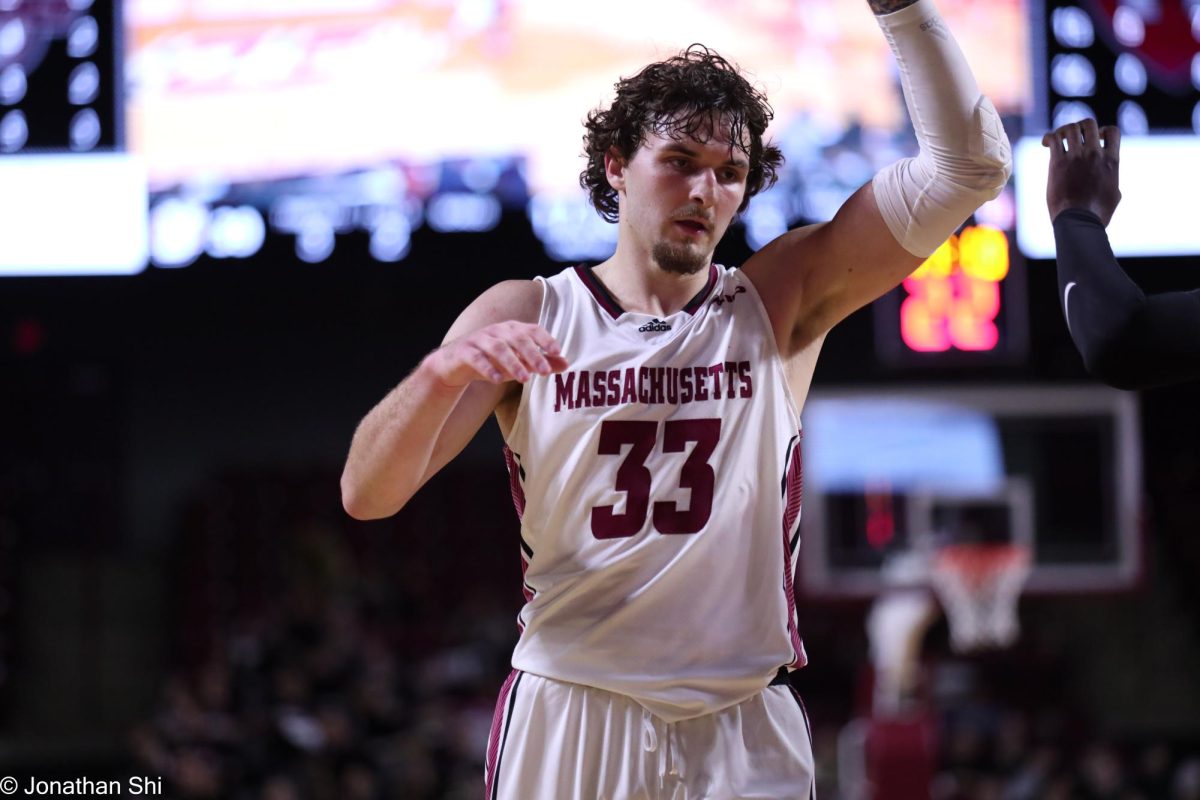
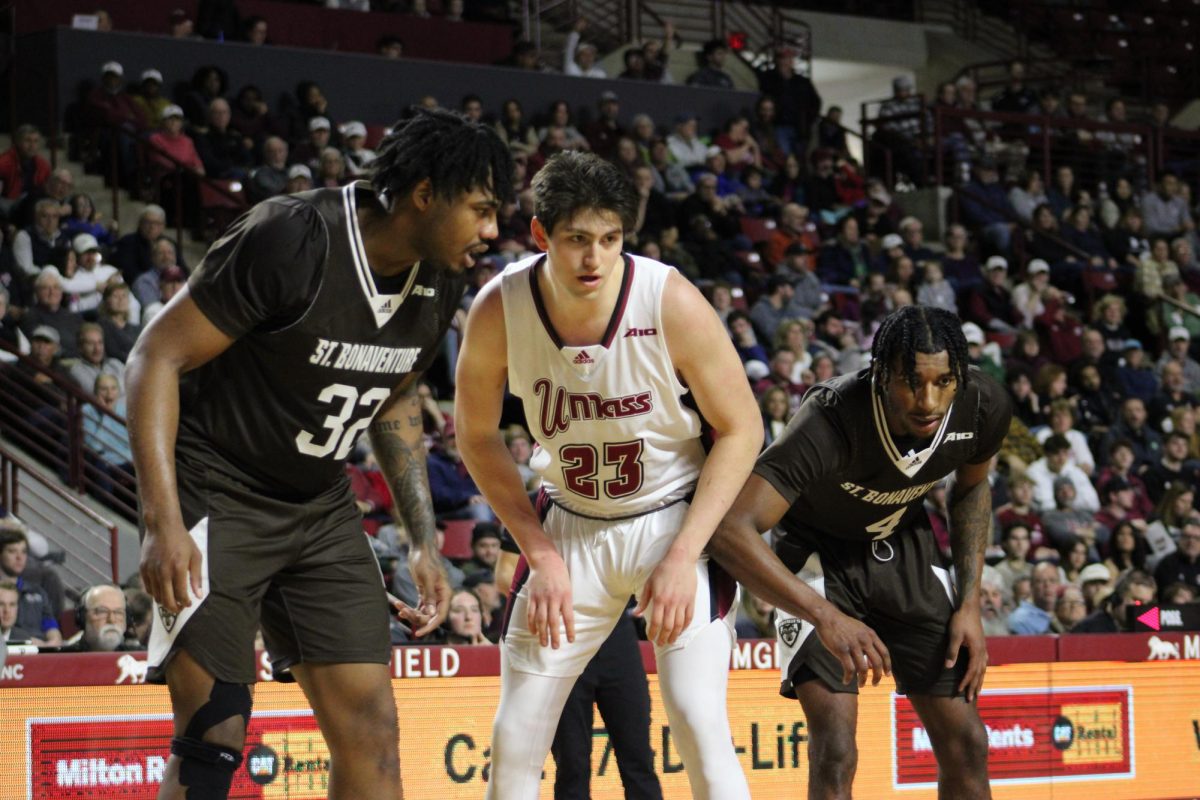
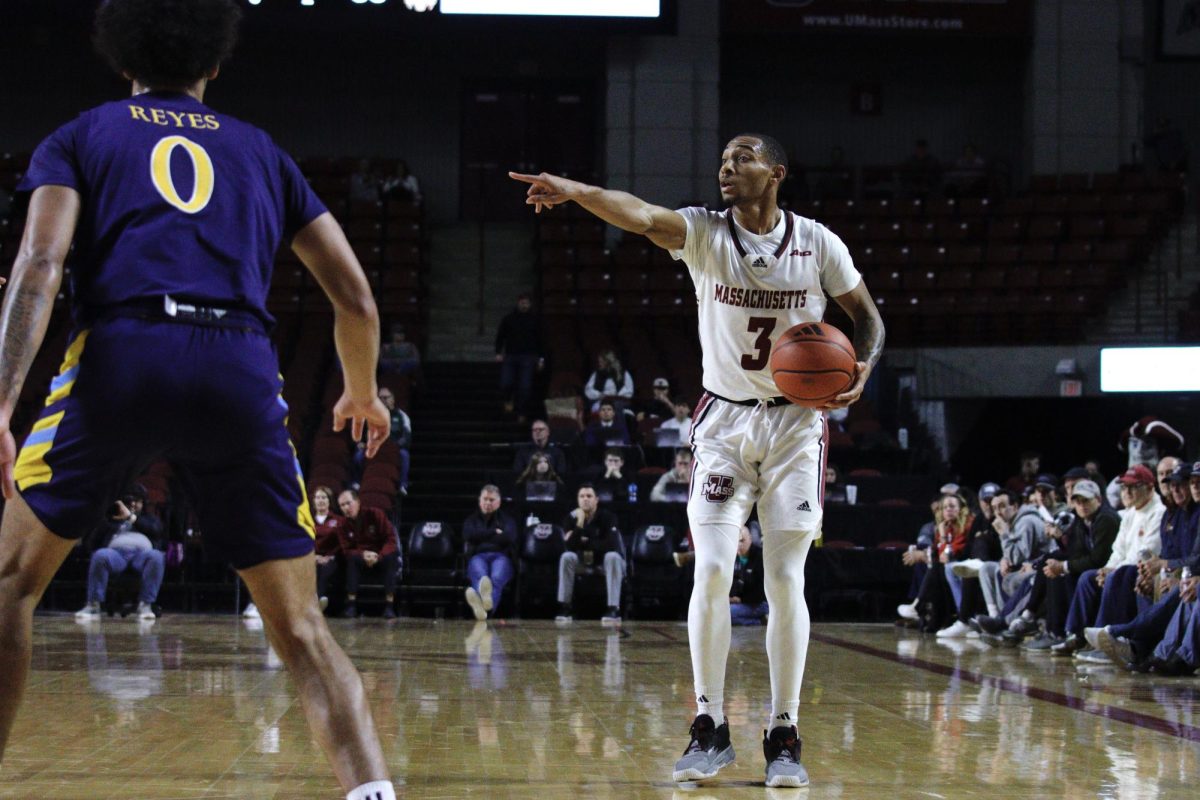
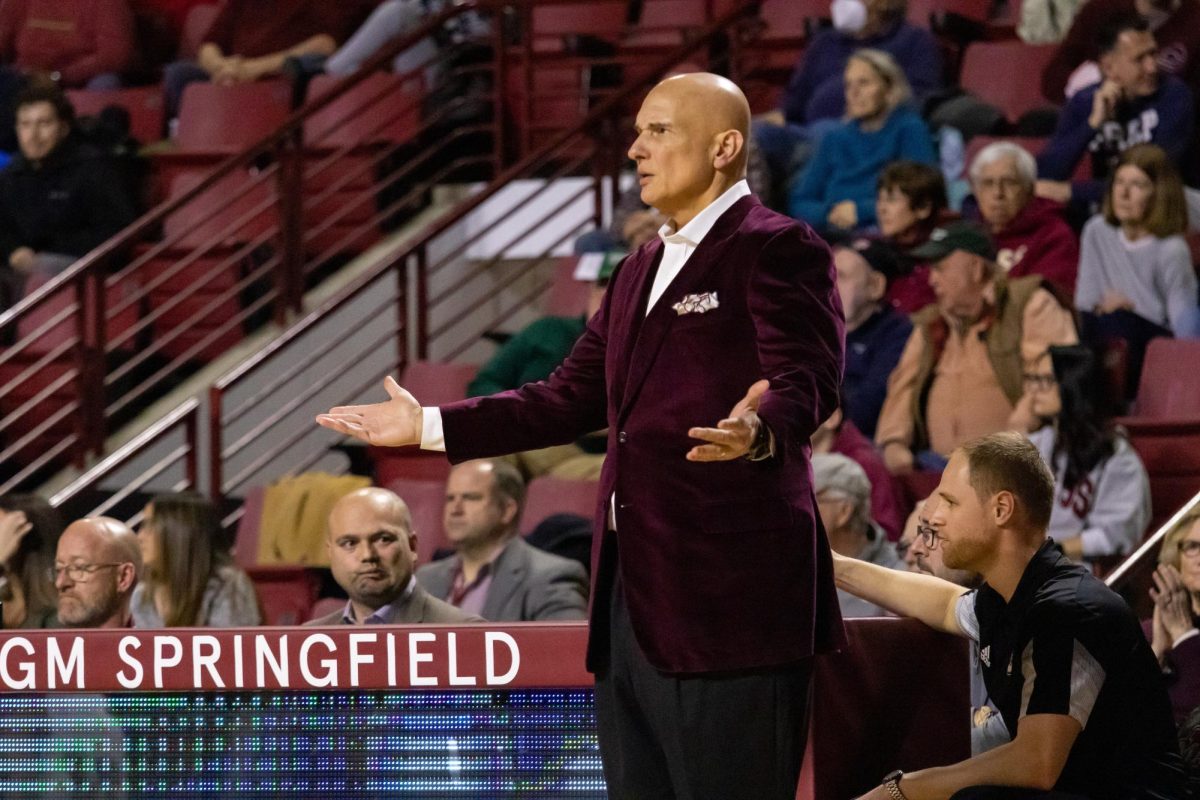

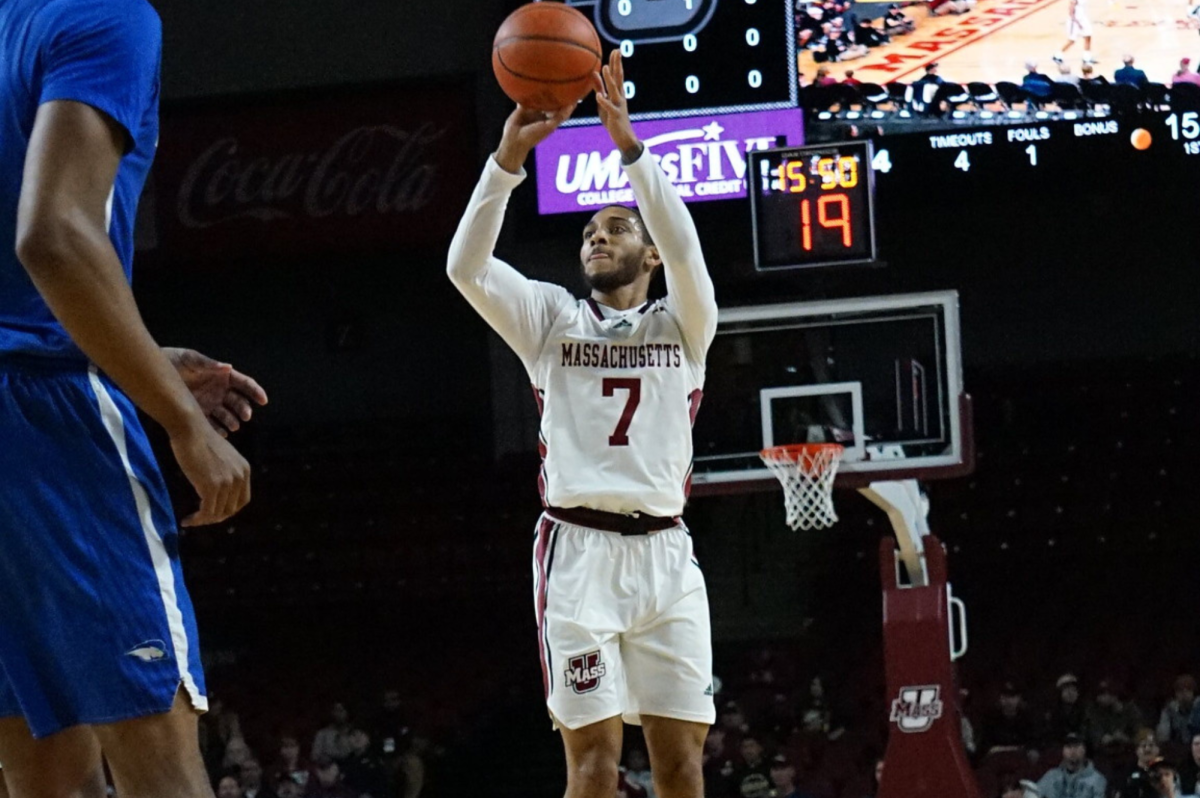
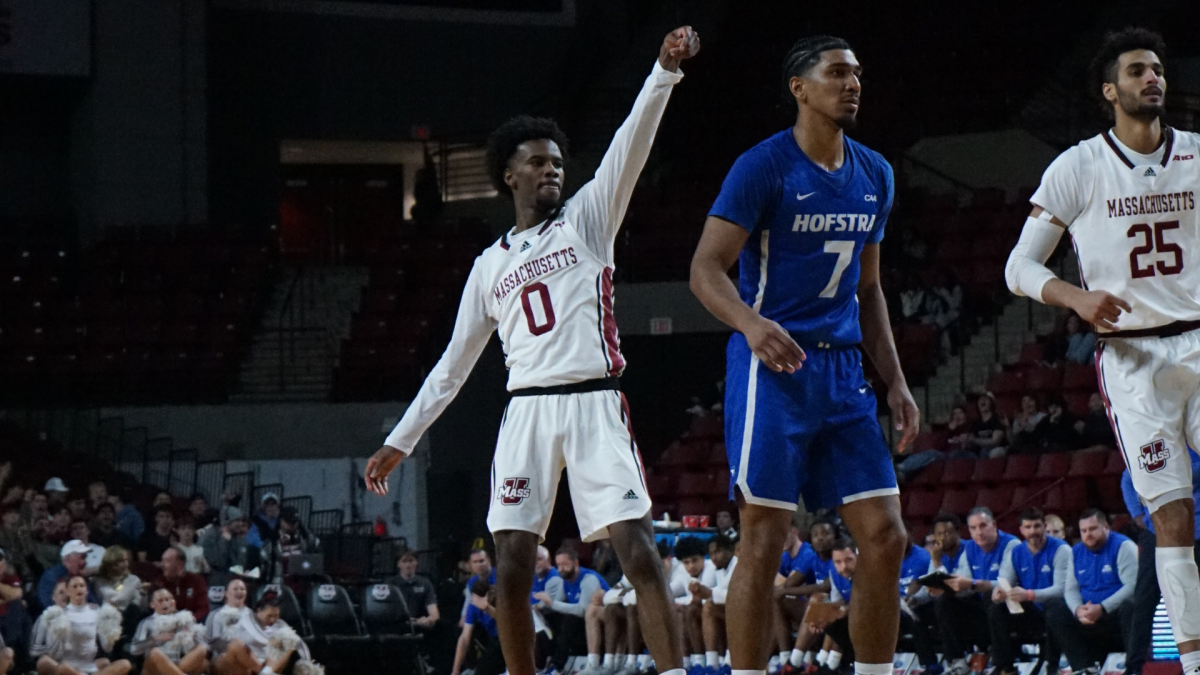
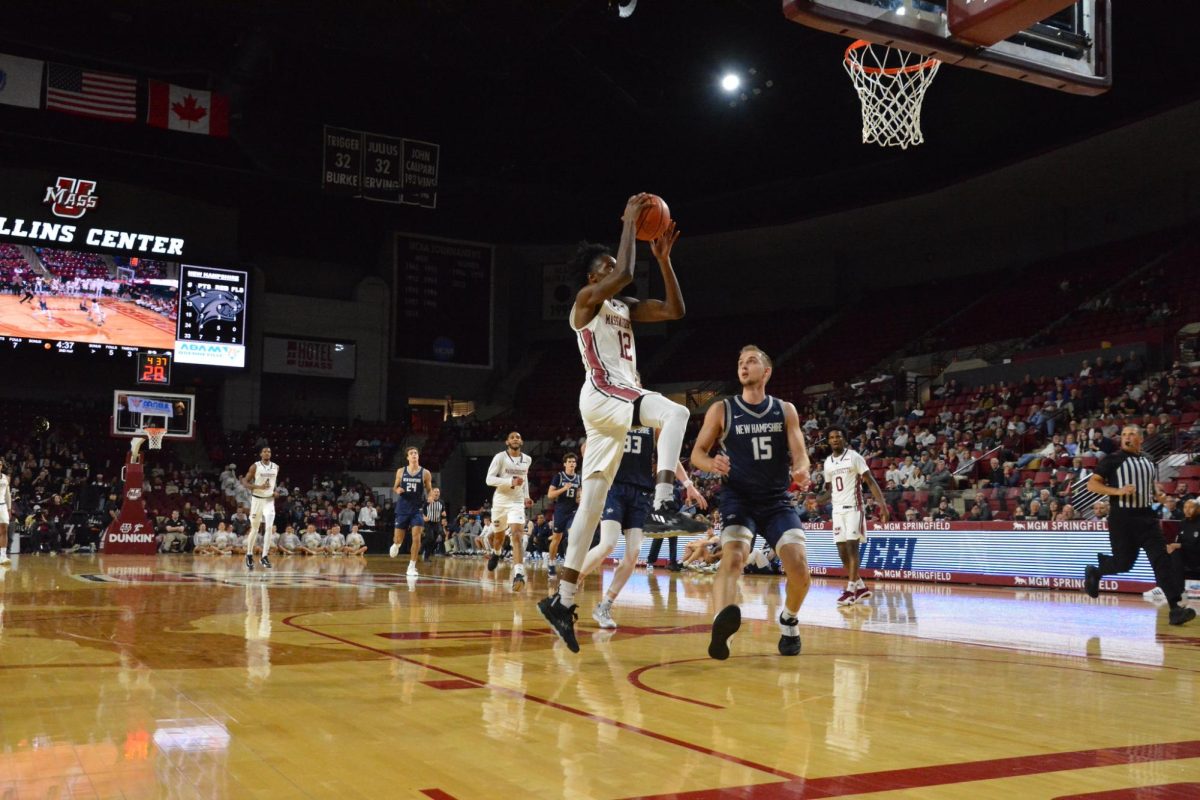
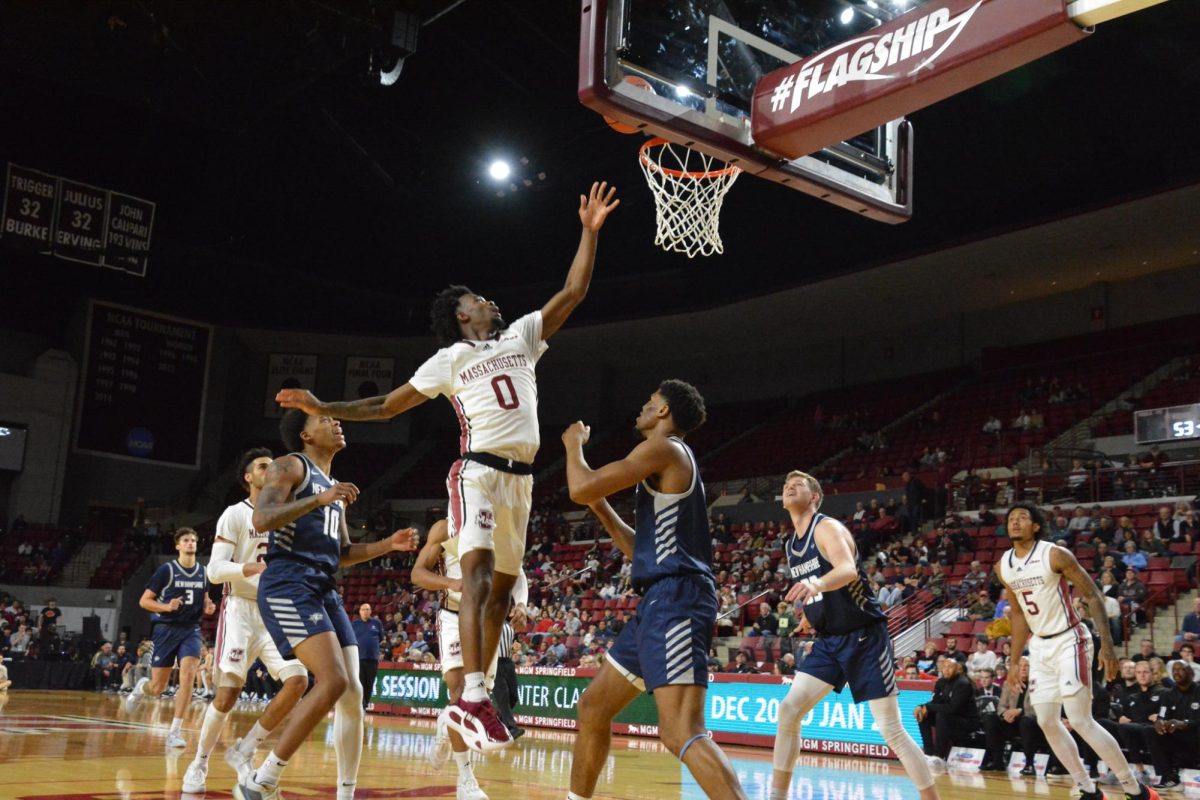
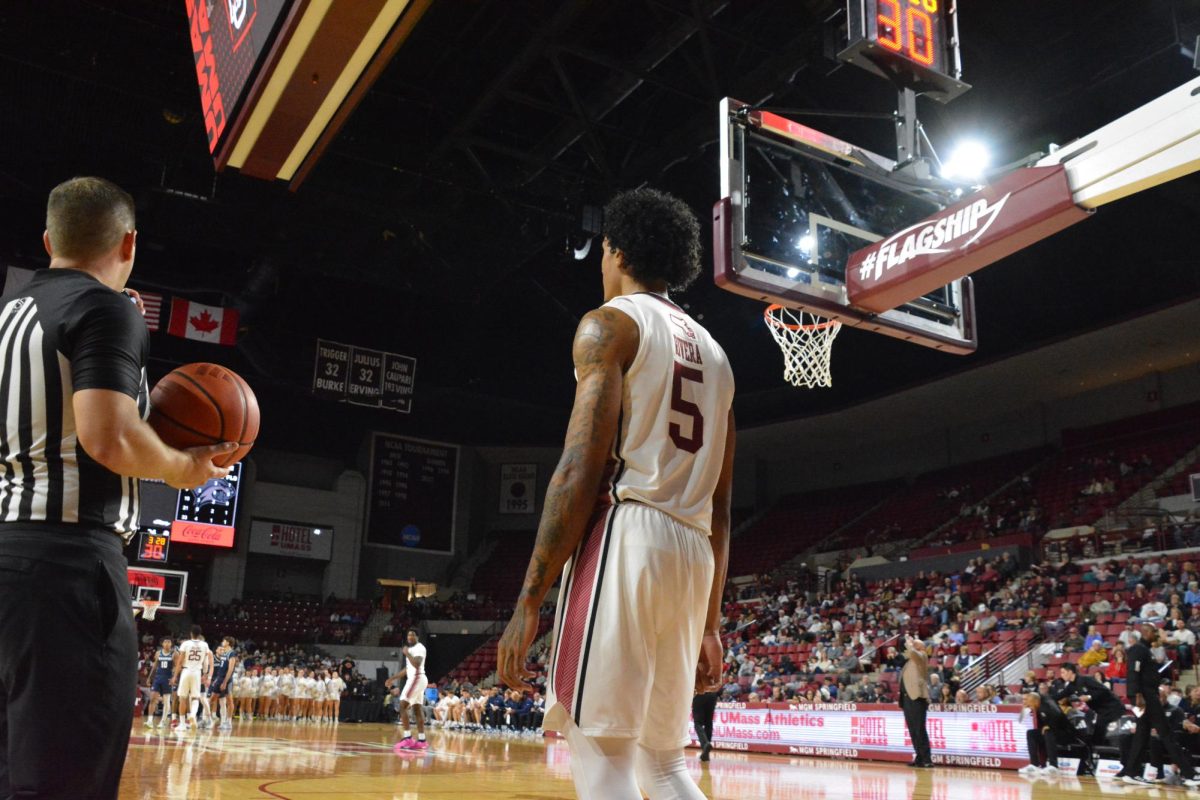






UMatt • Jan 29, 2013 at 4:16 am
Good for Freddie. He’s been my favorite player since that Super Sunday event they held before the 09-10 season (the “Fab 5’s” Freshmen year). I noticed the improved D last season, but he has been outstanding this year. Really helping this team. He’s taken a lot of over the top criticism from fans so I’m glad to see him having a great Senior season.